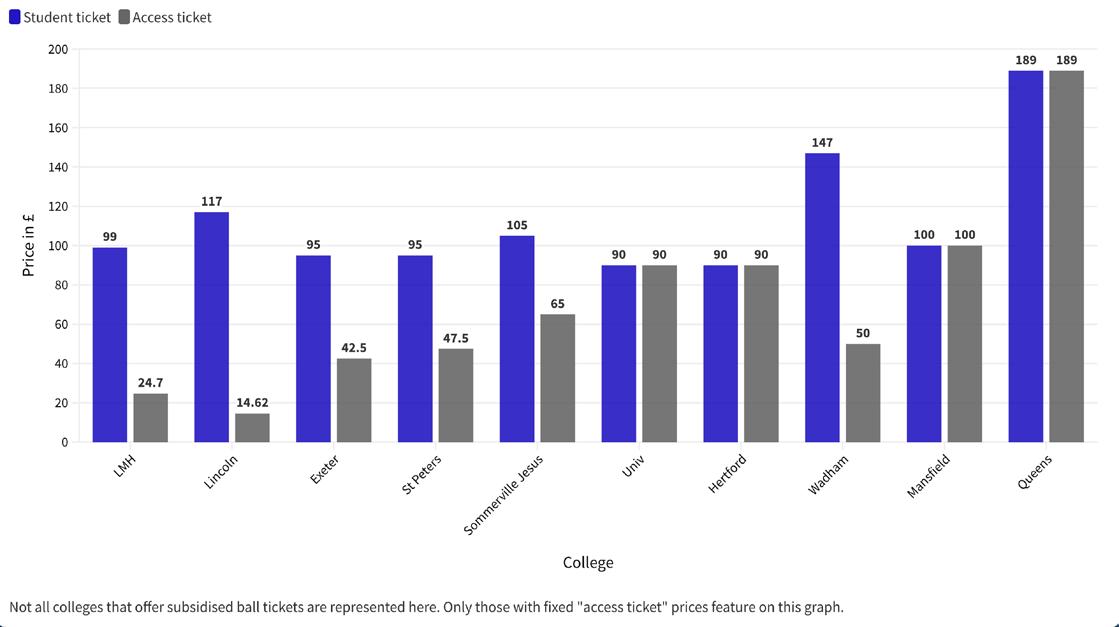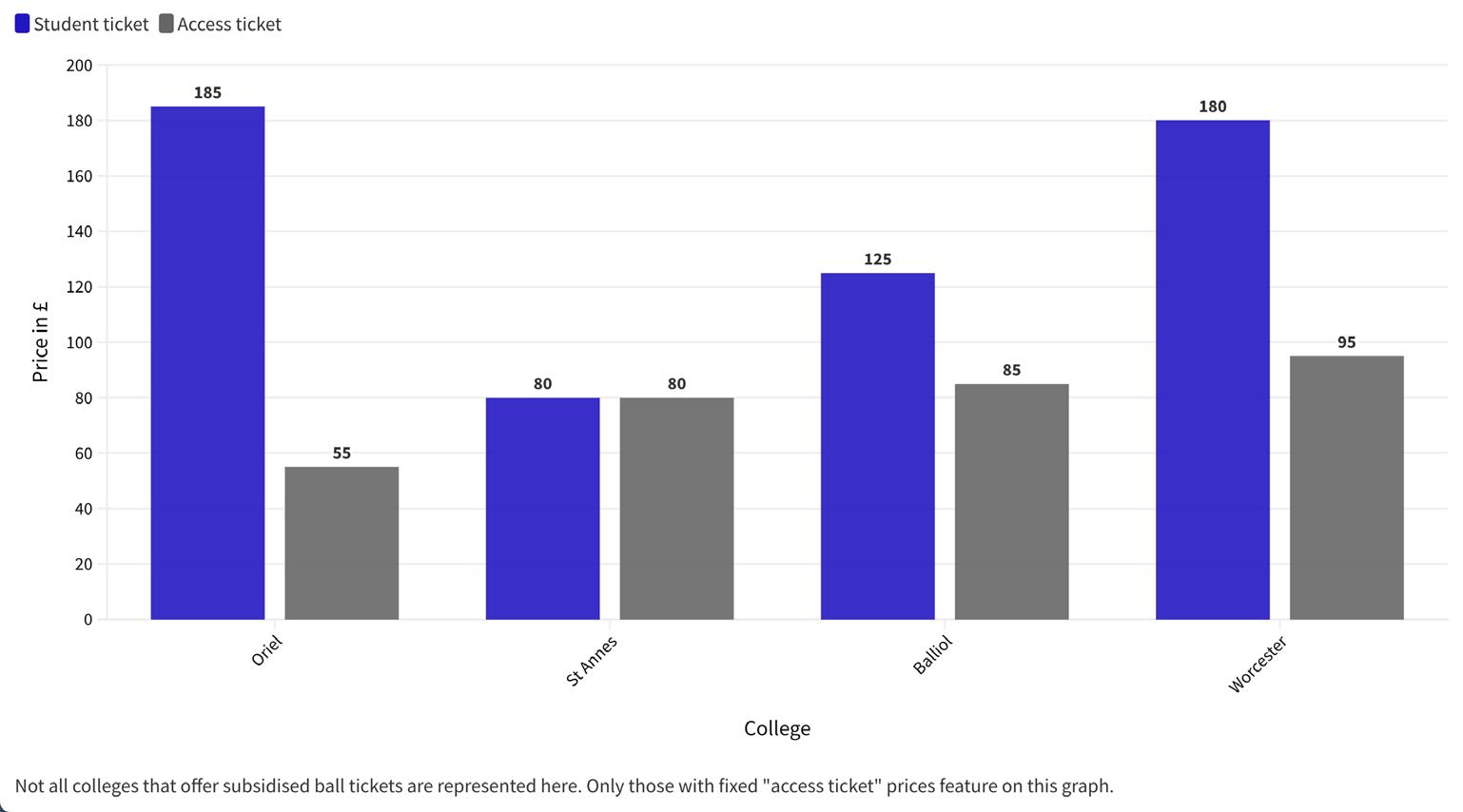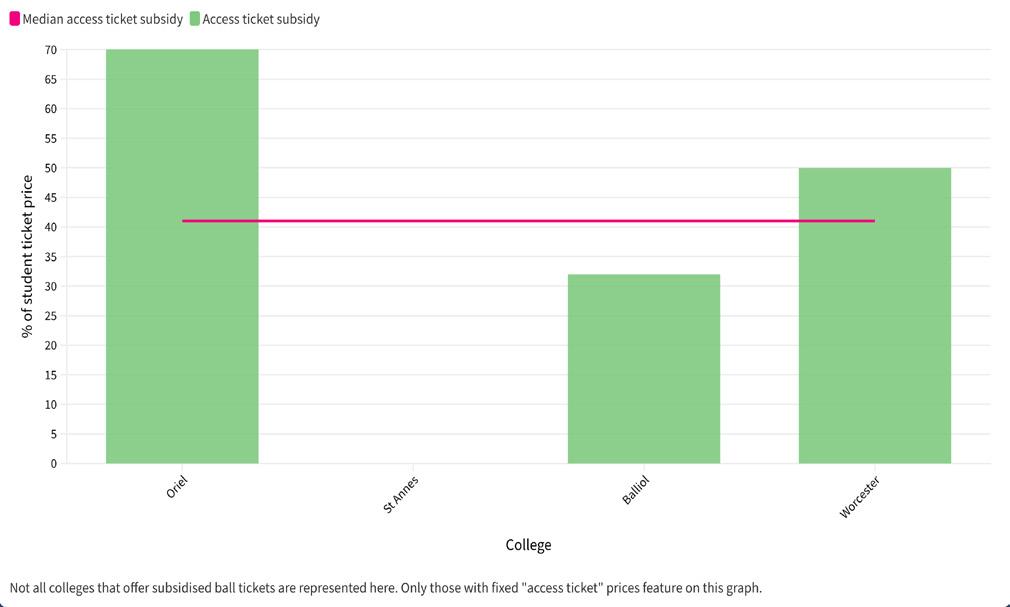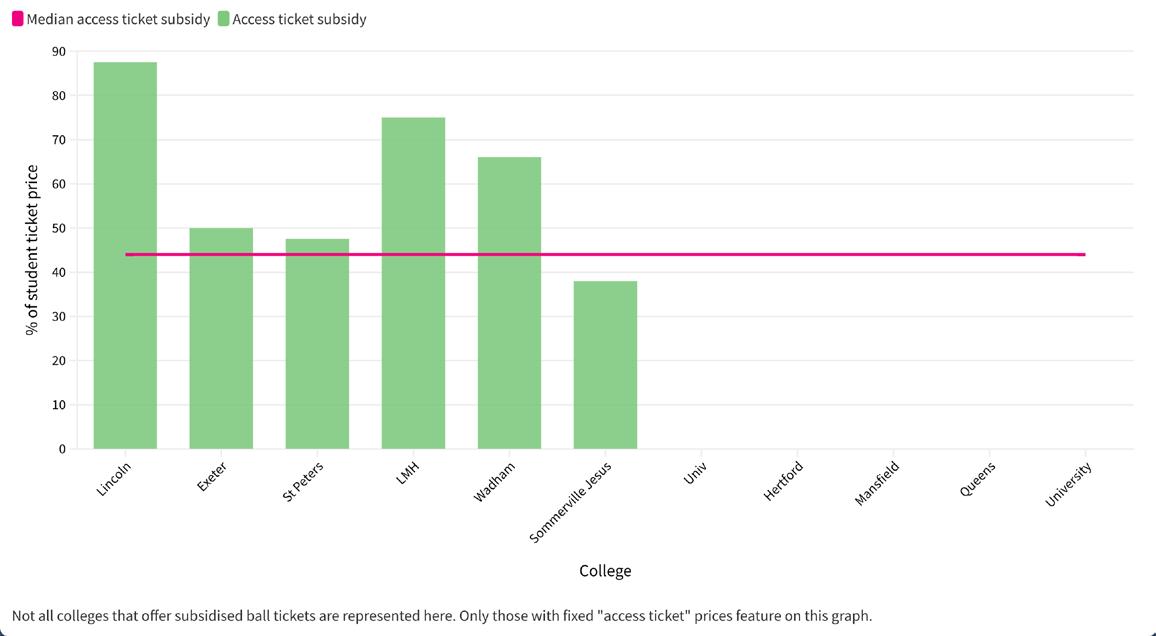
7 minute read
got to start getting rid of this CO2”: Vice Chancellor speaks out on climate crisis
Oxford University’s 273rd Vice-Chancellor and clinical neuroscience professor Irene Tracey caused a stir when she made comments earlier this month saying that fossil fuel companies are the key to solving the climate crisis.
“Some of the solutions will have to come from the very industry that’s part of the problem,” she told PA news agency before her inaugural address on January 10th. During the address, Tracey said it was time “to get serious about climate change”, adding, “I want Oxford to lead in addressing what is now the most pressing issue of our times.”
Advertisement
She claims that “to a certain extent there has to be still that recognition and engagement of that industry” as they have “a great science and engineering base to come up with some of the solutions” and that “they’ve also got the fnances to do it”.
Her message is at odds with many students who are attempting to get the University to stop receiving money from fossil fuel companies. Oxford Climate Justice Campaign released a 2022 report that showed the University received £1.6 million from the fossil fuel industry in 2020-21. Tracey is not opposed to receiving such funds but said in her address that such money should be taken “only where the purpose explicitly relates to enabling meaningful accelerations away from carbon usage and speeding the transition to net zero carbon”.
Refecting on her statements while taking a walk in the Christ Church Meadow, Tracey told Cherwell that working with the fossil fuel industries “just makes sense”. “It’s a little bit from my medical area, how when you’re trying to solve a disease and a disorder, you work with the pharmaceutical industry… to co-create solutions,” she said. However, she emphasized that there are still steps to be taken to get fossil fuel companies involved in the climate crisis dialogue. She said that as we are still dependent on fossil fuels, “there is this question around how we might be able to encourage the companies to take responsibility and ownership for dealing with the CO2 at source whilst we’re using the oil.”
Tracey also highlighted that asking fossil fuel companies to take this new responsibility is not a dialogue involving only University administrators and fossil fuel companies. “We’ve got to do this with our partner organizations and colleagues around the world, and that’s exciting,” she told Cherwell.
Tracey stated that she does not see fossil fuel frms recapturing their carbon emissions as the only action that needs to be taken. “[It] doesn’t mean that we don’t wean off fossil fuel use, but it buys us time to get there,” she explained. “It’s about the phasing and timing… There’s exciting, completely new and alternative energy potential sources coming our way.”
Furthermore, she believes that Oxford University’s science community is “very well placed” to make contributions in this interdisciplinary area. “We’ve got people who are working in the chemistry department in terms of … green chemistry, chemical developments that are more green and friendly, through to how we’re going to [make] better batteries, how we’re going to recycle plastics and convert that… And then, you got the big physics as well,” she stated. She added that we should not only think about developing and scaling up alternative energy sources but also “being a responsible citizen and a steward of this globe”.
She told Cherwell: “We mustn’t lose sight also of biodiversity and the other sorts of impact of climate as well, and the impact of changing climate on health - our medical division is very well placed as others in other universities around this country and around the world in terms of thinking about what the challenges will be in terms of the health problems that will come with global warming.”
Collaborating with an international team, Oxford University climate scientist and geosystem science professor Myles Allen published a scientifc article in Environmental Research Letters earlier this month discussing Tracey’s statement about fossil fuel frms taking responsibility for their own emissions, a solution also known as “extended producer responsibility (EPR)” [1]. Allen emphasized that EPR may be a feasible solution due to its affordable nature. “We don’t know exactly how much the fossil fuel industry is making right now, but it’s a lot,” he told Cherwell.
“The big advantage of a carbon takeback obligation is it provides a very predictable route to net zero, no matter what happens to the cost of fossil fuels or the availability of renewable energy,” Allen stated. “To put this in perspective, natural gas in the UK currently sells for about 10 pence per kilowatt hour… A lot of (the money) is going in taxes, but a lot of it is going in proft. And the cost of delivering that natural gas to your cooker or your boiler has not changed.”
Allen also introduced ways in which carbon can be re-captured through both naturebased and geologically-based methods if EPR policies are implemented to target climate change. When it comes to geologicallybased methods, Allen emphasized that “storage needs to be permanent”, making storage options limited. “The only one which has already been developed on any scale is to inject (CO2 emissions) as a liquid back underground… We know that it works, because the industry has been doing this for decades,” he said. He added that there are potentially cheaper geologically-based solutions under development, such as remineralization (turning carbon to rock) and enhanced weathering (accelerated natural carbon chemical drawdown), but “we don’t yet know if they’re going to work on the sort of timescales we need them to work”.
Nature-based solutions, such as treeplanting, could also offer an affordable shortterm solution. However, a warming world will likely cause “many of the processes in the biosphere that might absorb carbon turn into sources and start to release it again”. Allen says, “In our paper, we say we use naturebased solutions up until 2050. But after 2050, we require 100% geological storage.” Allen added that a separate novel idea is to “cut down trees or gather fallen trees and literally bury them to accelerate the production of coal” but that more research is needed in this area towards the challenge of stopping decomposition.
Read the full article online at cherwell.org
Continued from front page according to fgures listed in the 2021 annual admissions report. Colleges with a proportion of low-income students above the university average of 13.3%, like Mansfeld and Hertford, did not sell any access tickets last year. Meanwhile, Lincoln College, where only 5.9% of 2021 admits were from low-income backgrounds, offered some of the most generous access reimbursement or other access schemes of unspecifed monetary value. Three balls fell into this category last year, including St Catherine’s ball, “Eclipse”. planners in this case. ticket prices at 25% of standard price or free. The disparity of subsidies across colleges demonstrates that access measures are not always adapted to assist those with the most
The Catz JCR voted to put aside £5000 to ensure “that any JCR member that wants to come to the ball but for whatever reason is unable to pay the full ticket price can get support”. Following this announcement, an email was sent to all undergraduates a week before ticket release explaining how to apply for “a fully-subsidised or partially-subsidised ball ticket”.

Amongst the balls in 2022-23, three balls are implementing similar broad affordability schemes, including Merton’s and Magdalen’s white tie commemoration balls. On the whole, it seems that those wishing to attend a white tie ball are more likely to fnd access tickets: six out of seven of the commemoration balls within the past two years offered subsidies and reimbursements.
David Hamer, Co-President of this year’s Crankstart Ball, understands this strategy. Since the allocation of access tickets is limited, meanstested, or restricted to a certain bursary category, it can be diffcult to fairly distribute these subsidies, especially since fnancial information is protected and personal. Hamer admits that “you could defnitely argue that the only appropriate action is to reduce the cost of the ball for all and need.
Loan has not risen on par with infation over the last year, rising only 2.3% while the Consumer Price Index has risen 9.2% year on year as of December 2022. In contrast, the university’s fagship scholarship program for students from lower income households, the Crankstart Scholarship, has risen by £500. College fnancial support varies from dedicated bursaries to hardship funds.
The relative wealth of a college has an understandable impact on the availability of access tickets, though not as dramatic as may be expected. All but one of the fve wealthiest colleges per capita did not offer subsidised tickets for its students. On the lower end of the scale, the poorer colleges tend to not offer access tickets, with the signifcant exception of Lady Margaret Hall, which boasted comprehensive access schemes for their ball. At LMH, all Crankstart scholars and those who have previously completed the Foundation Year programme received half-priced tickets to the 2022 ball, while those currently on the Foundation Year programme attended the ball for free. This comparison does not take into account colleges which offer fexible


Many white tie balls also develop partnerships with local dres shops and clothing rental services. New College, for example, partnered with Rathbone Tailors to provide a 20% discount for clothing hire. However, hiring a full suit with a tailcoat or an evening gown with optional gloves and tiara, as is required by the dress code, can cost nearly as much as a ticket for a cheaper ball.
The only white-tie ball which did not offer signifcant quantities of tickets at low cost was Queen’s’, the cheapest white tie ball in 2022. General rather than targeted affordability seemed to be a priority of sacrifce some of the extravagance for accessibility”. However, he caveats his statement, adding that the money lost in cheaper tickets would have to be made up in college support or sponsorship.
This year, the overall decline in ticket prices does not help the students who would most beneft from subsidised tickets. Bursaries from the UK government, the University of Oxford, and colleges help students pay for living expenses and other costs of student life. However, the government Maintenance
Nonetheless, there are options for students whose college does not offer a suffciently inexpensive ball. Many society balls, like the LGBT Society’s Glitterball or the University Biological Society Ball, offer ball tickets below £60, though some require membership to obtain the lowest priced tickets. The Crankstart Ball, the frst event of its kind dedicated to lowincome students in many years, sold all tickets for under £70, including guest tickets. Crankstart scholars also received tickets costing around £49. The Crankstart Ball organisers wanted to make the event as “accessible as possible”. In Hamer’s experience, “there has absolutely been an expectation at Oxford for students to go to college balls.” This expectation - combined with the decision of many colleges to evict students from certain areas of the college on the night of the ball - means that even those who cannot afford the tickets feel pressured into buying them anyways.
With the increase in cost of living and the decrease of access tickets, balls are becoming less affordable for low-income students. If only the most extravagant commemoration balls, at the richest colleges, offer meaningful access schemes, then the tradition of the Oxford college ball may become increasingly out of reach.







